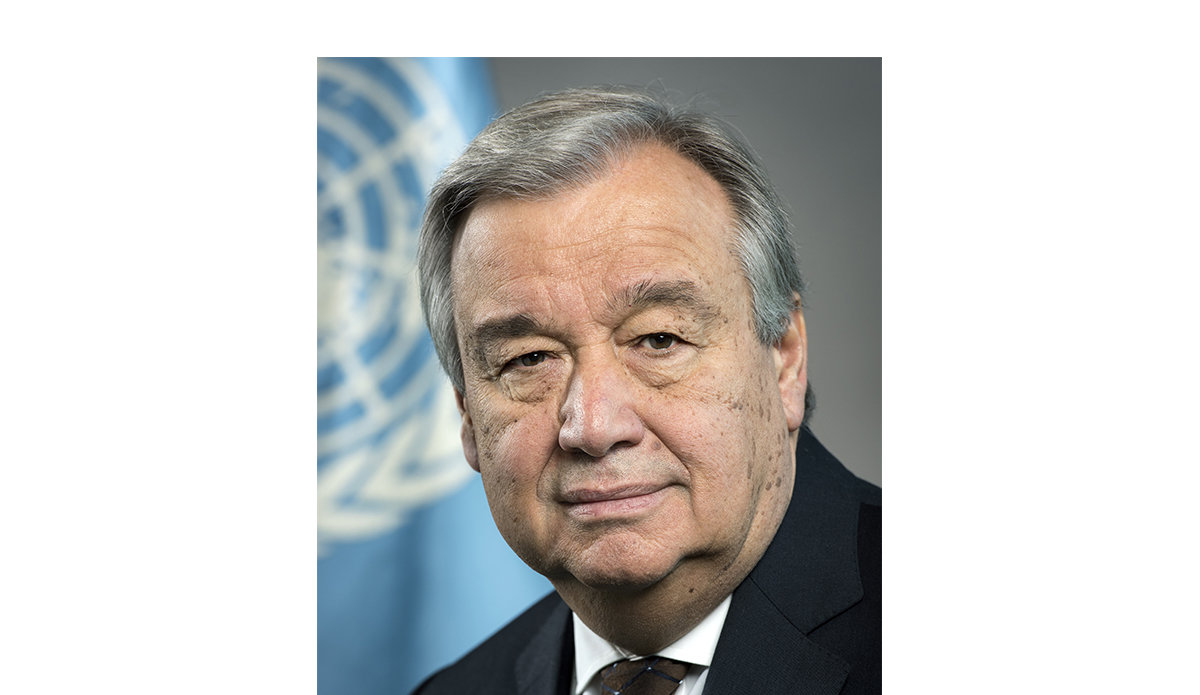Preface - António Guterres, Secretary-General of the United Nations (2016-)
 The United Nations Mission in Liberia (UNMIL) deployed in October 2003 to a country which, after 14 years of brutal civil wars, was a failed state being pulled apart by warring factions. The public sector was in total collapse, the country’s infrastructure lay in ruins, the economy was destroyed and the national police and army had disintegrated. As a result of the conflict, more than a quarter of a million Liberians were killed, nearly a third of the population was displaced, and an estimated 80 per cent of women and girls experienced conflict-related sexual violence.
The United Nations Mission in Liberia (UNMIL) deployed in October 2003 to a country which, after 14 years of brutal civil wars, was a failed state being pulled apart by warring factions. The public sector was in total collapse, the country’s infrastructure lay in ruins, the economy was destroyed and the national police and army had disintegrated. As a result of the conflict, more than a quarter of a million Liberians were killed, nearly a third of the population was displaced, and an estimated 80 per cent of women and girls experienced conflict-related sexual violence.
Over the course of UNMIL’s deployment, the country has made significant progress. More than 100,000 former combatants participated in disarmament, demobilization and reintegration programmes, and the armed forces and police have been rebuilt. In that time, Liberia has held three peaceful elections: the first two resulted in victories for President Ellen Johnson Sirleaf, the first woman in Africa to be elected President. President Sirleaf was succeeded by George Weah following his victory in the 2017 election.
The last stretch of UNMIL’s mandate has been no less complicated than its first. In a country where there had been no constitutional transfer of power since 1944, and where the political culture features a deeply embedded sense of entitlement by the ruling elite, peaceful transition of authority was a particular challenge.
The political good offices mandate entrusted by the Security Council on the Secretary-General’s Representative, Farid Zarif, proved critical to facilitating a successful electoral process. Those good offices were usefully complemented by the Economic Community of West African States (ECOWAS) – through mediation by former President of Nigeria, Olusegun Obasanjo.
As the mandate of UNMIL ends on 30 March 2018, Liberia enjoys peace and stability. The country no longer faces threats from war lords or marauding militias, and the Liberian Government has made commendable efforts to strengthen the rule of law and to revive the economy.
However, serious challenges remain. The overwhelming majority of the population has yet to see the anticipated dividends of peace, while many of the root causes of the conflict have not been addressed. The long-term sustainability of the gains achieved thus far will require continued and sustained international engagement and support, especially through joint efforts by the United Nations and international partners. Such involvement will be particularly important for Government programmes aimed at addressing key socio-economic issues such as poverty, youth unemployment, illiteracy and lack of basic infrastructure.
UNMIL leaves behind a country that has great potential to achieve lasting stability, democracy and prosperity. Over the past 14 years, the Mission has forged effective partnerships with the Government, United Nations agencies, funds and programmes, regional organizations, including ECOWAS and the Mano River Union, the international donor community, and local and international humanitarian and civil society organizations, all of which have helped place Liberia firmly on the path to post-conflict recovery. The human rights situation has improved dramatically, and efforts to promote national reconciliation have achieved some, albeit slow, progress.
The end of the peacekeeping phase of the United Nations engagement marks another turning point for Liberia. It is my hope that Liberia’s new leadership, bolstered by continued engagement in the country by ECOWAS and other regional and international partners, in coordination with the UN Country Team in Liberia and the United Nations Office for West Africa and the Sahel, will help address the remaining challenges to stability.
The Mission’s experience offers a wealth of lessons for current and future peacekeeping operations. I commend all the troop- and police contributing countries who participated in UNMIL, and I pay tribute to the 201 personnel who lost their lives in the service of peace in Liberia. I also thank my Special Representatives through the years and all the UNMIL staff who have greatly contributed to the success of the Mission and to the cause of peace in Liberia.
 UN
UN United Nations Peacekeeping
United Nations Peacekeeping





